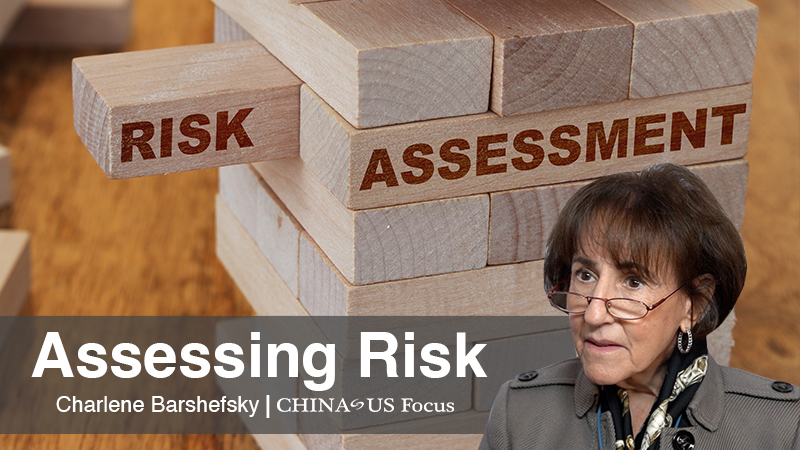Zhang Monan, Deputy Director of Institute of American and European Studies, CCIEE
Mar 05, 2024
Economic and trade cooperation has been regarded as the great stabilizer of China-U.S. relations for many years. As the two countries’ internal and external environments grow ever more complex, however, it’s not clear that this will continue to be the case.
Andrew Sheng, Distinguished Fellow at the Asia Global Institute at the University of Hong Kong
Xiao Geng, Director of Institute of Policy and Practice at Shenzhen Finance Institute, Chinese University of Hong Kong
Feb 29, 2024
The Hong Kong Monetary Authority (HKMA) and Financial Services and the Treasury Bureau (FSTB) are working to establish a regulatory regime for stablecoin issuers in the territory as soon as possible. Asset managers and fintech firms are reportedly following the effort very closely. Other governments should do so as well.
Gu Bin, China Forum expert at Tsinghua University, Associate Professor of Law at Beijing Foreign Studies University
Feb 26, 2024
By funding the war against Russia, Bretton Woods institutions, such as the World Bank and International Monetary Fund, undermine the rule of law as embodied in their charters. They have probably violated principles of economic impartiality, prudence and political non-interference.
Nicola Casarini, Senior Fellow, Istituto Affari Internazionali
Feb 26, 2024
China’s connectivity project is being reconfigured across the old continent. Western and Eastern Europe are increasingly divided regarding the Belt and Road’s infrastructure projects and investments – yet, Europe as a whole is welcoming monetary connectivity with China and wider adoption of the renminbi.
Curtis S. Chin, Former U.S. Ambassador to Asian Development Bank
Sudarshan Ramabadran, Policy Specialist, Author, and International Communications & Public Diplomacy Professional
Feb 26, 2024
Reflections on Lessons from Davos for US, China, India & Beyond– When the global order seems to be shifting faster than ever, the need for committed partnerships between established and developing powers should be seen as necessary.

Karen Mancl, Professor Emerita of Food, Agricultural & Biological Engineering, The Ohio State University, and Fellow, Woodrow Wilson Center for International Scholars
Feb 26, 2024
Since the early 1970s the United States and China have exchanged teams of agricultural scientists to explore solutions to food security issues. Agriculture has been a part of the U.S.-China Science and Technology Agreement since 1979 and over 2100 U.S. scientists traveled to China to learn more about their technology with a near equal number of Chinese scientists also participating in the exchange. Sadly, this foundational agreement expired in August 2023 and is operating on just a 6-month extension.
Xu Hongcai, Deputy Director, Economic Policy Commission
Feb 20, 2024
The economy will stabilize and improve this year, and prudent monetary policy can bring reductions in the bank reserve ratio and interest rates. In the short term, the priority should be the expansion of domestic demand. In the longer term, innovation must drive high-quality development.
Stephen Roach, Senior Fellow, Yale University
Jan 31, 2024
China is at a critical juncture. Its deflation-prone debt-intensive economy is seriously underperforming. Its government has become embroiled in a major superpower conflict with the United States. And it is staring down the barrel of a demographic crisis. Worst of all, Chinese authorities are responding to these challenges more with ideology and stale tactics from the past, rather than with breakthrough reforms. Imaginative solutions to tough problems are in scarce supply.
He Weiwen, Senior Fellow, Center for China and Globalization, CCG
Jan 29, 2024
In 2024, China and the United States should seek an approach that is at once global and bilateral and addresses problems at the governmental working level and at the business level. With joint efforts, bilateral trade will start to grow again.

Charlene Barshefsky, 12th United States Trade Representative
Jan 25, 2024
Charlene Barshefsky, a former top U.S. official, discusses in the interview with China-US Focus the lengthy negotiation process for China's entry into the WTO and its lasting impacts on China's economy, global integration, and U.S.-China relations, despite current challenges in trade norms and geopolitical shifts. She also emphasizes the significance of international businesses having a presence in China and the considerations they need to evaluate when determining whether to expand to the Chinese market.